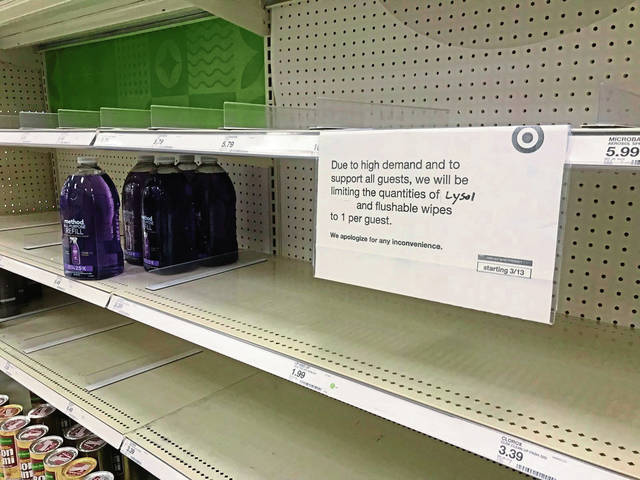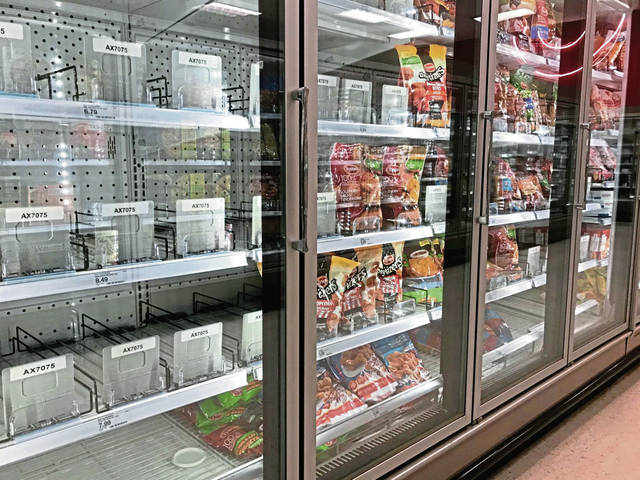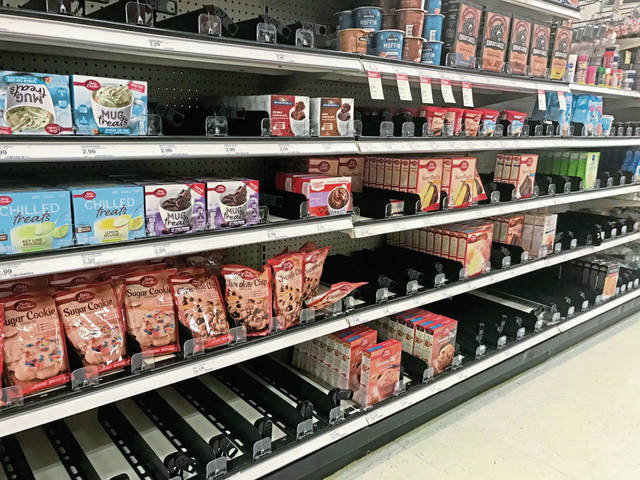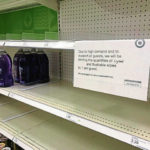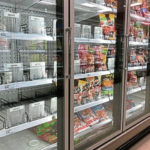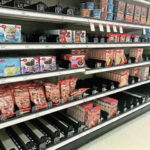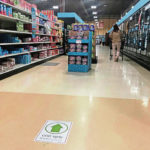Baking is helping people pass the time under stay-at-home orders, gauging from aisles normally filled with flour, sugar and brownie mixes at several local grocery stores.
Cake mixes, chocolate chips and other staples were hard to come by at Target and Giant Eagle in North Huntingdon this week. Stocks of vegetable and canola oil were low, although several bottles of both were available at each location.
People looking for new activities while under conoravirus restrictions has left Lynette Merlino, manager of Kuhn’s Market in Wilkins Township, unable to stock yeast since February, she said. The same goes for Lapp Family Market in Unity.
“They’re irritated,” Merlino said of customers trying to find specific products. “For the most part, most of them are understanding. Some of the things we have been out of, we have been out of for a long time. It’s not like it’s something new.”
Customers have been dealing with empty shelves at some stores since at least March, when droves of people loaded up on toilet paper, cleaning wipes and hand sanitizer. Now, spots once filled with frozen fruit, peanut butter, canned soup, macaroni and cheese, broth, canned beans, pasta, rice and spaghetti sauce sit empty at Target.
Several frozen products at the Giant Eagle in North Huntingdon also were getting low, including fries, breakfast sandwiches and pizza. Paper products remained scarce at both locations, along with bleach and other cleaning supplies such as dish soap.
Demand outpaces supply
Signs posted at Walmart stores across the country warn of a national supply shortage on dish soap, Business Insider reported. Procter & Gamble, which makes Dawn and Gain, said they are aware of the shortage, noting that the “demand exceeded what we were able to supply.”
Manufacturers are working to keep up with high demand without the help of warehouses full of extra supplies, said Doug Baker, vice president of industry relations at FMI, or the Food Marketing Institute. The Washington, D.C.-based trade group also is known as The Food Industry Association.
Manufacturers usually warehouse enough supplies in case of spikes in demand during times such as natural disasters. That isn’t the case today, as the warehouses were emptied in March, Baker said.
“Everything that they’re producing is bypassing that warehouse and going directly to a retailer’s distribution center to go to the stores,” he said. “Inventory is still flowing. There’s no critical disruptions, and there should be no concern that we will ever run out of food. We’re a country of abundance.”
Local inventory
As the industry works to keep up with demand, limits on how many paper and cleaning products customers are allowed to buy remain at several local stores. Some have extended limits to eggs and, in some cases, meats.
“I know we’ve been having some people that carry local meat having trouble getting scheduled into local butcher shops because they’re kind of flooded,” said Kendall Lapp, manager of the Unity store. “So that’s one thing we’ve been missing a little bit.”
Meat supplies are expected to become limited and could be sold at higher prices as workers at meat plants across the country — and locally — become sick with covid-19, limiting supply, the Associated Press reported.
Local meat markets are seeing the brunt of those changes, with sales surging.
“I think the public just needs to understand that there won’t be a complete outage. There won’t be a critical disruption of food supply, but they will see periodic outages,” Baker said. “And they will see limits on what they can buy in stores, and that’s just to make sure that as many people can get access to that inventory that can possibly access it.”
Giant Eagle announced over the weekend they were temporarily limiting the purchase of ground beef and on-sale meat items to two of each per transaction.
“With the exception of hand sanitizer and sometimes toilet paper, Giant Eagle stores are well-stocked, including meat,” Giant Eagle spokesman Dick Roberts wrote in an email, noting that supplies of poultry and pork remain normal. “Every food retailer faces the same conditions from manufacturers, and this is not exclusive to Giant Eagle.”
Doug and Ryan Sprankle, owners of Sprankle’s Neighborhood Markets in Leechburg and Kittanning, said the only limits on meat are on ribeyes, which can make about 14 steaks.
“We have probably eight different suppliers that, in one form or another, bring us meat products,” said Ryan Sprankle. “So between all of those different suppliers, even if they have limits, we’re able to buy from all of them.”
Multiple suppliers are an advantage to owning a community-based grocery store, said Tom Charley, co-owner of Charley Family Shop ’n Save stores in Greensburg.
“So if supplier A doesn’t have what we need, we can go down our list of people to talk to,” he said. “We’re just using all of the resources we have at our fingertips right now.”
For the Sprankles, using multiple suppliers and ensuring people are not overbuying products has helped keep shelves stocked, Doug Sprankle said.
“As long as everybody buys what they need, the supply chain always catches up,” he said.
Future of supply chains
As states across the nation start to reopen, changes in the supply chain will depend on how comfortable people feel going out to restaurants and returning to their normal lives.
If people return to restaurants or order more take-out meals from businesses, some of the strain will be taken off the grocery industry, Baker said. But if people are apprehensive to return to those public settings, similar purchasing behavior will continue.
“I think the longer that this goes on and the more that businesses are able to show the public what they’re doing to keep them safe and their staff safe, then I believe there will be some comfort level and people will slowly make their way back to some sort of normally, even if it is a new normal for them,” Baker said.
In Wilkins Township, Merlino said she is seeing a slight shift in the availability of supplies, noting that the store received toilet paper and Lysol products.
“It’s rough,” Merlino said, “but for the most part everybody’s kind of understanding. (Customers) understand what’s going on.”


